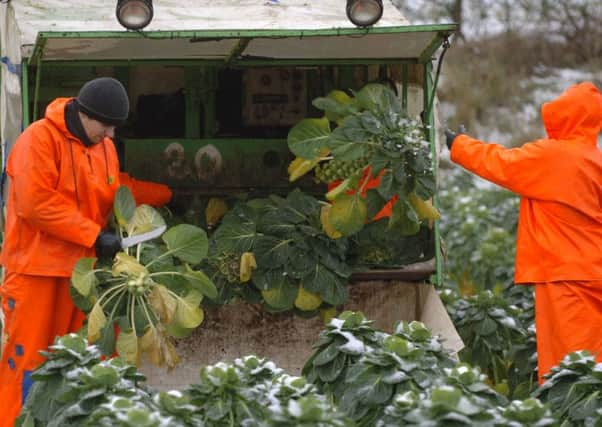Farmers hoping for clarity after election is over
This article contains affiliate links. We may earn a small commission on items purchased through this article, but that does not affect our editorial judgement.


For the nation as a whole this has been a strange election called by a Prime Minister who already had a mandate for another three years’ government but for the agricultural industry it has been even more bizarre.
• READ MORE: Farming news
If the purpose of the election was to get all the proverbial ducks in a row before entering into talks over leaving Europe, it might have been thought farming policy, as the industry most integrated with its continental neighbours, might have featured more highly.
Advertisement
Hide AdAdvertisement
Hide AdFrankly, the future of farming has not been seen in all the political froth and there is little consolation in knowing that other major issues facing the country have also been submerged with an agenda based on selected audiences, photo opportunities and evasion of direct questions.
The failure in getting farming to be a high profile subject is no criticism of the NFUS which timeously and professionally issued its manifesto complete with wish lists. This document and the English Union’s manifesto are both strong on how they wanted to see farming survive and thrive in a world outside the EU.
In its comprehensive document, the Scottish Union majored on three key issues. One was for a sensible approach to be taken on “controlled immigration” which would allow the Scottish agriculture and food processing industries access to EU workers for seasonal and permanent, skilled and unskilled posts.
The importance of foreign workers to some parts of the industry should not be underestimated. It is not just the soft fruit and field vegetable sectors that employ workers from abroad, many of the top dairies and pig units also have key employees where English is not their native tongue. Overall it is estimated that one in five employees in agriculture comes from abroad.
• READ MORE: General election news
The government may bring back the Seasonal Workers scheme to deal with part of the issue but it is more likely to impose a tax on those employers using foreign labour. That is potentially bad news for an industry already showing minimal profitability.
In its second major point, the Union called for support for productive agriculture as opposed to the present CAP system of just paying for the area of land.
Agriculture policy has been devolved for nigh on two decades but the Conservatives have indicated they would like to see a UK wide environmental policy as a major method of injecting cash into the countryside.
Advertisement
Hide AdAdvertisement
Hide AdThis will not go down well with the SNP who will publish their manifesto tomorrow. The farming industry can expect battles on this issue.
The third call by the Union is for bold and ambitious Free Trade Agreements which would protect the UK market from cheap imported produce.
The achievement or otherwise of this goal will have a profound effect on the profitability of the farming industry. There is a widespread fear in the farming community that imported food will feature as a giveaway in trade deals where the UK wants to sell goods or services.
Talks on leaving Europe will, at long last, begin next month and tariff free access to this major market for commodities such as sheep meat will be critical for the industry.
All in all, the future is not only still very cloudy and uncertain it is also pretty gloomy. Experts from all sides are advising farmers to batten down the hatches until policies become clearer.
However, farming does not stand still and what is already happening in a major way is an aggregation of units into big or very big operations. Estate agents may not admit it but their sales books are full with the properties of those deciding it is time to leave the industry.
If there is any upside to the election it is likely to come with the departure of the UK Defra Minister. It is difficult to think of any significant decision made by Andrea Leadsom despite her being in post for the past eleven months. One bonus from the current policy vacuum might just come with her departure to the back benches or even further up into the hills where she believes the butterflies should be.